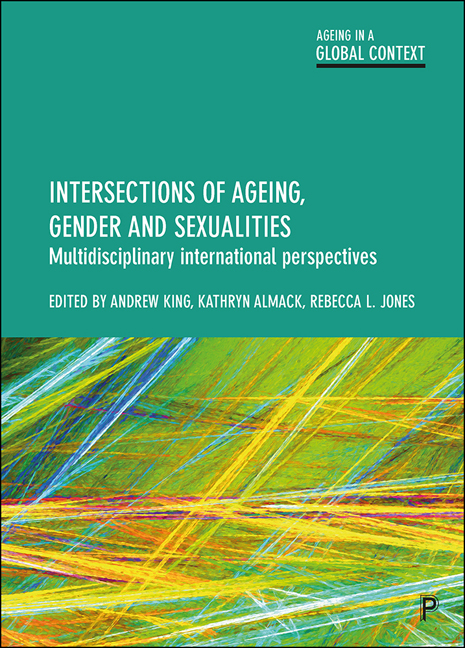eleven - Sexual and gender diversity, ageing and elder care in South Africa: voices and realities
Published online by Cambridge University Press: 27 April 2022
Summary
There is an almost complete lack of literature on the needs of – and care services for – lesbian, gay, bisexual, transgender and intersex (LGBTI) elders in South Africa and across the African continent. As a result, with the exception of Henderson and Almack (2016), we present here some of the first writings on this topic in South Africa informed by the literature base that exists in relation to our knowledge of elder populations more generally in the region. Taking a social justice-oriented and intersectional lens, we approach this study from an African standpoint by engaging African epistemologies and ontologies in relation to old age, death and sexuality. We also engage the intricate interplay of race, class, urban/rural realities and the apartheid legacy as they intersect with the lives of LGBTI elders. We conclude the chapter by proposing an Africa-centred and culturally sensitive model of care for LGBTI elders. We purposefully use the term ‘elders’ to reference the historic respect given to older people across the African continent and so as to situate this study within the Southern African context.
We begin by providing some relevant contextual information on South African realities before engaging with the research on ageing in South Africa and across the continent before looking at the very limited research and writing to date on the lives of LGBTI elders in South Africa. We then present as a case study an interview we conducted with an older, lesbian married couple about their experiences and perspectives on queer ageing in South Africa. We conclude by proposing an African, community- and home-based model of care for older people, including LGBTI elders, informed by contextual realities and African ontologies.
South African realities
South Africa has one of the most progressive constitutions in the world that is often lauded globally as exemplary in terms of its focus on inclusion and tolerance (Woolman, 2015). The protections afforded by the Bill of Rights include a number of specifically enumerated categories including age, gender and sexual orientation and Section 9 of the Constitution states that neither the state nor anyone may ‘… unfairly discriminate directly or indirectly against anyone on one or more grounds, including race, gender, sex, pregnancy, marital status, ethnic or social origin, colour, sexual orientation, age, disability, religion, conscience, belief, culture, language and birth’ (Bill of Rights, RSA 1996).
- Type
- Chapter
- Information
- Intersections of Ageing, Gender and SexualitiesMultidisciplinary International Perspectives, pp. 171 - 186Publisher: Bristol University PressPrint publication year: 2019

